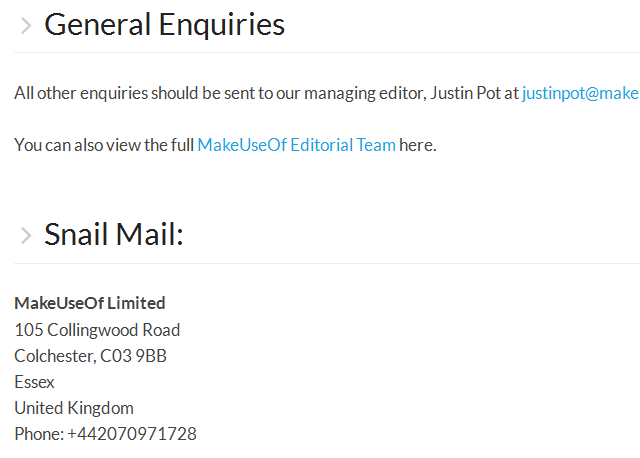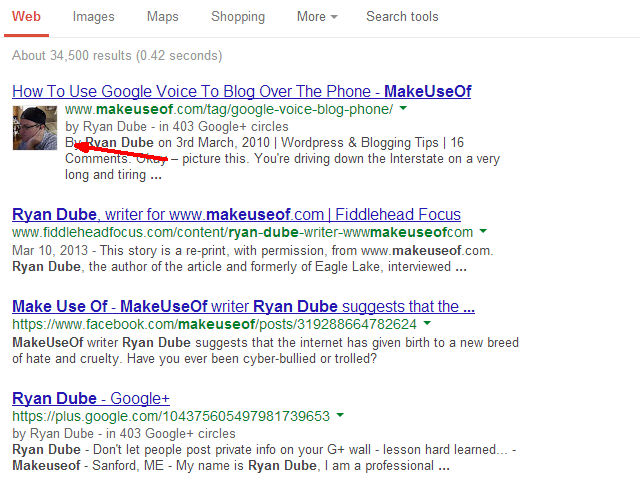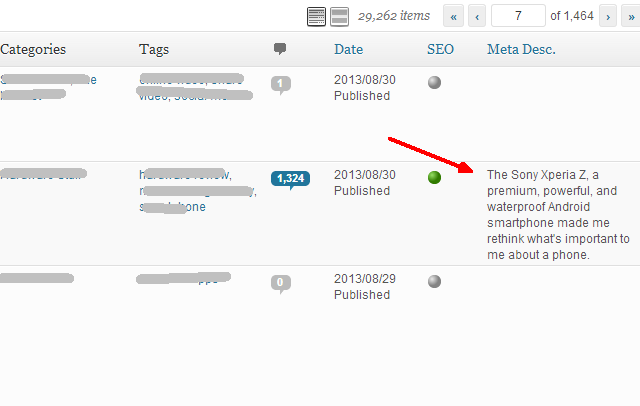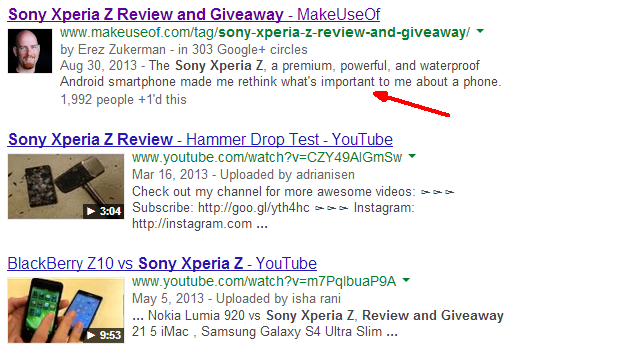Being a blogger is not the easiest job in the world. It requires patience, determination, and persistence. You have to be willing to write for nothing, and sometimes less than nothing, when you're starting your own site.
One of my favorite bloggers Darren Rowse – the owner of Problogger and one of the Internet's more financially successful bloggers – once wrote, "The Internet makes money for you when you build something that is real and when it matters to people." There are lots of web designers and Internet entrepreneurs that believe they can build a website within some popular niche, serve up relevant content in that arena, and through magical SEO tactics, grow that site into a money-making machine.
Were those entrepreneurs to actually read Darren's comment and appreciate the hints he provides about his success, they would realize that success – financial or otherwise – doesn't come from just advertising or SEO, but from the passion you bring to the site, and that what you are doing actually matters to people.
Even bloggers who understand that concept still struggle. We've offered some tips here in the past at MUO. Only a year after I started writing for MakeUseOf, I wrote an article with tips on launching a blog that starts getting traffic from day one by focusing on engaging readers outside of your blog. More recently, James offered 8 more useful strategies for doing the same – also focusing on similar issues. But even when doing the right things, bloggers have this constant fear that their efforts will be somehow "flagged" by Google as a "content mill". No blogger worth their salt wants their site to be considered one of those.
Working For a Content Mill
When it comes to content mills, I have a unique vantage point. About a year before I started writing for MUO, I had actually landed a writing job with a site that would later become flagged by Google as one of the Internet's worst content mills. It was a surreal experience, because I've never been a writer to just pump out the minimum article word-count for a client, simply to collect the article fee and move on to the next. I wasn't writing for the money, I was writing for the love of writing – doing interviews, investigative pieces, and stuff that I actually found interesting.
The effort paid off, and I eventually earned a spot within the highest echelons of the company as a "Group Editor" in charge of a subset of editors who covered different niches – in my case the technology and paranormal niches. We were supposedly "in charge" of driving content and quality for our own areas, but what I soon learned was that the decisions of the Group Editors were usually caged-in by the black-hat SEO-driven direction of the site owner and his two managing editors.
It wasn't a very good feeling, being restricted from creating the sorts of content people within those niche areas were actually interested in. Instead of writing about cool technologies and gadgets, we were restricted to having to identify only high-volume search topics – so we ended being forced to write about horrible, dry topics only to drag in unsuspecting search engine users.
How Not to Become a Content Mill
This isn't to say that writing an article about free fonts can't be useful, but within a web-design niche, it didn't really fit. By 2011, after getting slapped on the wrist by management for trying new things, Google finally identified the site as a search-engine leech, and it lost most of its traffic overnight. Due to my constant struggles with management to change things, I was one of the first of many to be "laid off" - and it was the best thing that could have ever happened to me.
I took the white-hat portion of SEO training I had received, combined it with blogging tips from other SEO experts around the web, and further peppered in experiments I'd run on several of my own sites. At the time of these changes, Aibek gave me the role of SEO management here at MakeUseOf, which provided a much more flexible and creative environment to put that experience to use.
Today, I'm going to put it to further use, by sharing with you 6 of the most critical things you need to do to harness the power of SEO, while also maintaining the unique quality and value that ensures you are never defined by anyone - let alone Google - as a content mill.
1. Keyword focus is important, but don't keyword spam
What I've noticed during my time rubbing shoulders with online writers is that they tend to fall into two main groups when it comes to SEO. One group of writers appreciates the value of SEO guidelines for ensuring search engines pick up on your content, while a second group of writers express everything from general dislike of SEO to an outright disdain for it.
More often than not, these are published writers or journalists who have a deep-seated love for the written word, and – to their credit – feel that SEO "stains" the value of good writing. The problem is that these are writers who haven't fully evolved into the reality of how the Internet has transformed the creative writing process, and how understanding that new process is critical to a writer's survival within this environment.
Keyword usage is the biggest failure for these writers. Despite the brilliance of their content, their articles usually go without much traffic, because they refuse to consider keywords, or to use them correctly throughout their articles. Matt Cutts explained it best in a video he released in 2012 describing the top 3-5 areas where webmasters make the most mistakes.
In that video, he explained that many people simply fail to use the right words on the page. He explained, "Think about what the user is going to type, and include those words. So you don't wanna just say 'Mount Everest elevation', you want to say words like, 'How high is Mount Everest?'"
I can't even count how many times I've seen the best writer create one of the most brilliant articles about a topic like securely deleting data from a hard drive, and then fail to even write the phrase "securely deleting data from a hard drive" or something similar in the article. The core idea Matt is presenting here is this: when you write online, you have to think about what people are searching the Internet for, because you're publishing on the Internet, not in print.
So, using keywords to attract readers isn't the act of a content mill, it's the act of an online writer. You only enter the realm of content mill when you overuse it in an unnatural way, or only write about something because readers are searching for it. The key is to stick to your passion, but consider what people are searching for. Strike a balance.
2. Provide contact information
The next way you can distinguish yourself from a content mill is by giving your readers a clear way to contact you. Most sites that only seek to publish content for the sole purpose of drawing search traffic usually run a whole network of such sites, and have no interest hearing from or interacting with readers. Providing contact data – especially a snail-mail address – signals that you are a professional outfit and people can get in touch with you if they need to.
3. Provide a bio for your writers
The next way you can distinguish yourself from a content mill is by giving your writers a face. Give them a bio. Display them prominently on the main page and on the articles they write. This tells readers that you are not a huge content-generating site that hires hundreds of cheap writers from all over the world just to push content onto the Internet for search engine traffic.
When you display your staff in this way, it shows that you take your staff hiring seriously, and that you're an online publisher that means business, with the intent to produce high quality content for Internet readers. It displays professionalism, and it makes readers feel more personally connected with your articles and with your site.
4. Author information in search results
Authorship information is the data that appears about the article author inside of search results itself. It displays a clear photo of the author alongside your search engine results so that readers can see it was written by a real person, with a real bio that can be checked out on Google +, not some random, low-quality content producer working for pennies per article.
You can accomplish this for your site by following the guidelines detailed in Google Webmaster, but essentially it comes down to making sure you have a large, clear Google + profile photo, and then associating that profile with your content by creating a clear author byline and either submitting a matching email to Google using the Authorship tool they offer (see Webmasters page), or making sure you've linked to your Google + account from the article page, including "rel=author" in the link.
5. Use a meta description to sell your article
In the past, Google – through Matt Cutts – has tried really hard to get people off of the whole keyword-stuffing kick when it comes to meta descriptions. This was a major sin by all the major content mills. Matt made it clear that Google does not weigh keywords in the meta description for search results as heavily as they used to. But here's the kicker: in recent years, Matt has come back and stated that he's observed people have gone too far in the other direction, and are failing to use meta descriptions at all.
The reality is that while it may not be used as much to rank you in the search results, it is still used for your search snippet. Using the meta description does not make you a content mill – it may actually make you appear far more professional in search results.
In a 2012 video, Matt Cutts stated, "The meta description is really handy, because if we don’t know what would make a good snippet, and you have something in the meta description tag that would basically give a pretty good answer–maybe it matches what the user typed in or something along those lines, then we do reserve the right to show that meta description tag as the snippet."
This is exactly the case, and if you install your favorite SEO Wordpress plugin and fill out that field, you'll see it work for yourself. What's the value of hand-crafting your snippet? Again, Matt explains it better than anyone when he said, "If the meta description is really well written and really compelling, then a person who sees it might click through more often."
6. Research and citations
The last piece of advice for setting your site apart from content mills is not only doing good research for your research or investigative articles, but providing good references and sources when you use them. These should be high-quality sources with a high Page Rank. You don't have to check Page Rank, but use common sense. Major news sources, well established websites (like MUO), or other long-standing, well-respected websites or academic sources make for excellent citations. Show these in the footer of your article or at least linked throughout.
The whole idea is to present your site and yourself as a professional, high quality source of information. The above tips will help you to get there more quickly, as they are particular items that Google looks for when checking for an authoritative source. Once you establish that reputation, it's almost a snowball effect. Once other sites recognize you as an authoritative source, you will get linked to from popular websites, further increasing your authority and improving your search position even further.
What kind of things do you do to improve the authority and professionalism of your website? How do you make sure to set yourself apart from the content mills? Share your own ideas and tips in the comments section below!
Image Credits: The Canton Paper Mill via Flickr, Caged Dog via Shutterstock, Man in Beret via Shutterstock









